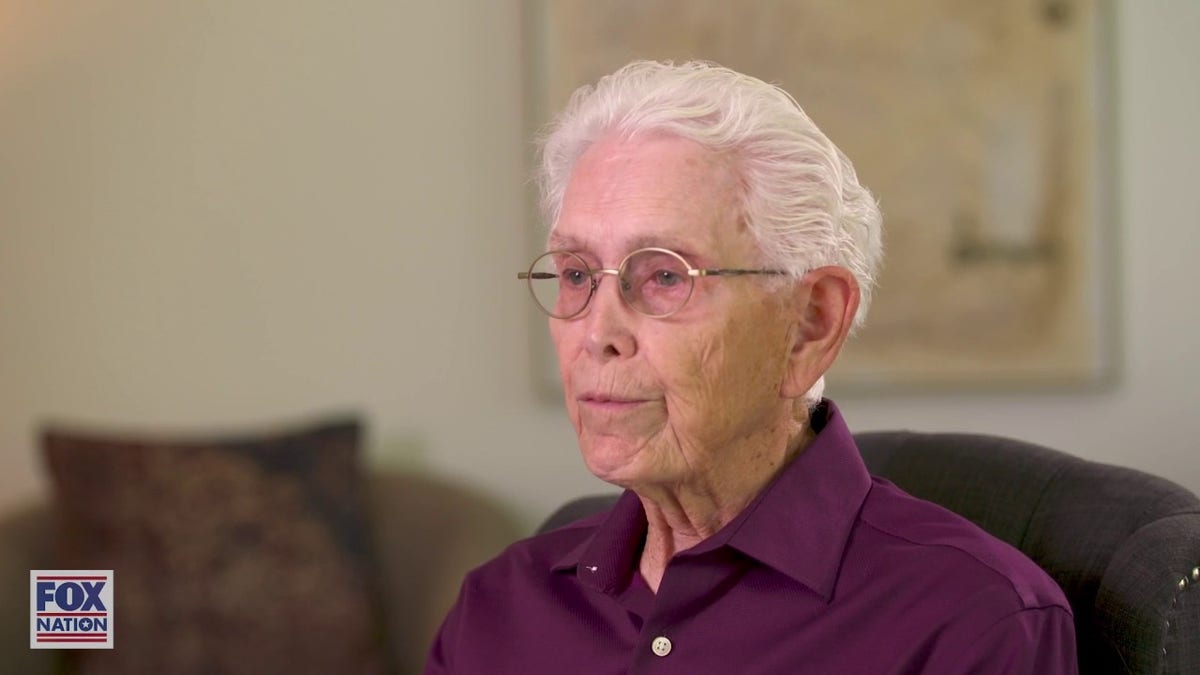‘Biggest medical fraud of our time’: Riley Gaines dives into the heart of gender-affirming care epidemic

Riley Gaines emerged as a central figure in the fight to preserve the hard-fought progress of women’s sports after drawing attention to fairness in an age where including transgender athletes remains hotly-contested.
Now the former NCAA swimmer is emphasizing a more detrimental side effect of the gender-affirming care epidemic.
“Female athletes are not the biggest victims in this story. It’s the children who’ve had their bodies mutilated,” Gaines said, previewing the new Fox Nation special, “Transfixed.”
In the special, available for streaming on the platform Thursday, Gaines spoke to Prisha Mosley, a detransitioner whose female-to-male journey began at age 16 and came to a surprising halt just a couple of years ago.
OPINION: I BEGAN ‘GENDER TRANSITION’ AT 16. I WAS LIED TO IN A TERRIBLE WAY. NOW I AM SEEKING JUSTICE
“There’s no way to replace the body parts I lost,” Mosley lamented, reflecting on the surgical treatment she received after being told she was a boy.
Mosley, who was born a female, began taking male hormones and had her breasts removed at age 18, leaving scars across her chest.
Though hormonal interventions typically render patients infertile, Mosley became an exception after giving birth to a baby boy via C-section earlier this year.
The effects of her gender-affirming care, however, made her hips too narrow to deliver the baby naturally, made her insulin level high and atrophied her uterus, bladder and vagina, according to a report.
“I call it the biggest medical fraud of our lifetime,” Walt Heyer, founder of the Sex Change Regret organization that educates people on the implications of sex changes, said of the gender-affirming care push.
JUDGE GRANTS DETRANSITIONER’S LAWSUIT AGAINST DOCTORS TO PROCEED IN COURT: ‘SUFFICIENT’ ALLEGATIONS

Heyer’s experience began in 1944, when he took interest in the clothing his seamstress grandmother created.
“She made me a purple chiffon dress, [a] full length evening dress, put me in the dress and told me how cute I was, and that kind of launched that whole confusion,” he explained.
“At the age of four, it turned into emotional and psychological child abuse and, as a result of cross-dressing, my Uncle Fred began to sexually abuse me when I was eight years old because of the dress,” Heyer said in the Fox Nation special. “And, because of the dress, my dad decided to do heavy discipline on me. So the dress caused me to be physically harmed and sexually harmed.”
The effects manifested during marriage and fatherhood as an adult, when he felt depression along with an urge to cross-dress.
He sought out counseling as a result, turning to the best in the industry.
“He was a world-renowned therapist. I was making great money at the time and could afford the best therapists there was,” Heyer recalled.
OPINION: STOP THE MUTILATION OF OUR GIRLS WITH SO-CALLED ‘GENDER-AFFIRMING CARE’

“And so I went to him, and he said I had gender dysphoria. When I explained to him that I’d been sexually abused, physically abused and emotionally abused as a child, I remember at that time I’m saying this, I’m 39 or 40 years old, and he said, ‘Well, that doesn’t matter.'”
But he later discovered it did matter, and now insists that sexual abuse is a common trigger for people with gender dysphoria. The condition, according to the Mayo Clinic, involves the psychological distress people experience when their gender identity conflicts with their biological sex or sex characteristics.
Heyer went on to transition, and then detransition. He now uses his voice to warn others about the harm of doing so, because Heyer and Mosley are far from the only people to experience challenges stemming from gender dysphoria.
CLICK HERE TO JOIN FOX NATION
In today’s age, gender-affirming care for minors remains heavily-debated and even restricted in some places.
In the U.K., for example, protests from transgender activists broke out after the National Health Service (NHS) stopped prescribing puberty blockers to minors, citing little evidence about their benefits and harms.
In the U.S., some surgeons, including American Society of Plastic Surgeons (ASPS) President Dr. Steven Williams, cautioned against the treatment for minors.
He told Fox News on Monday, “As physicians, we’re driven by evidence, and our care also involves compassion and interaction with patients. But we have to really look to the evidence when we’re thinking about what the appropriate care is for patients, and this is a newly-developing field. For adolescents right now, the evidence, there’s just not enough of it yet.”
To watch more of Riley Gaines’ investigation into the gender-affirming care epidemic, sign up for Fox Nation and begin streaming “Transfixed” today.
Read the full article here







